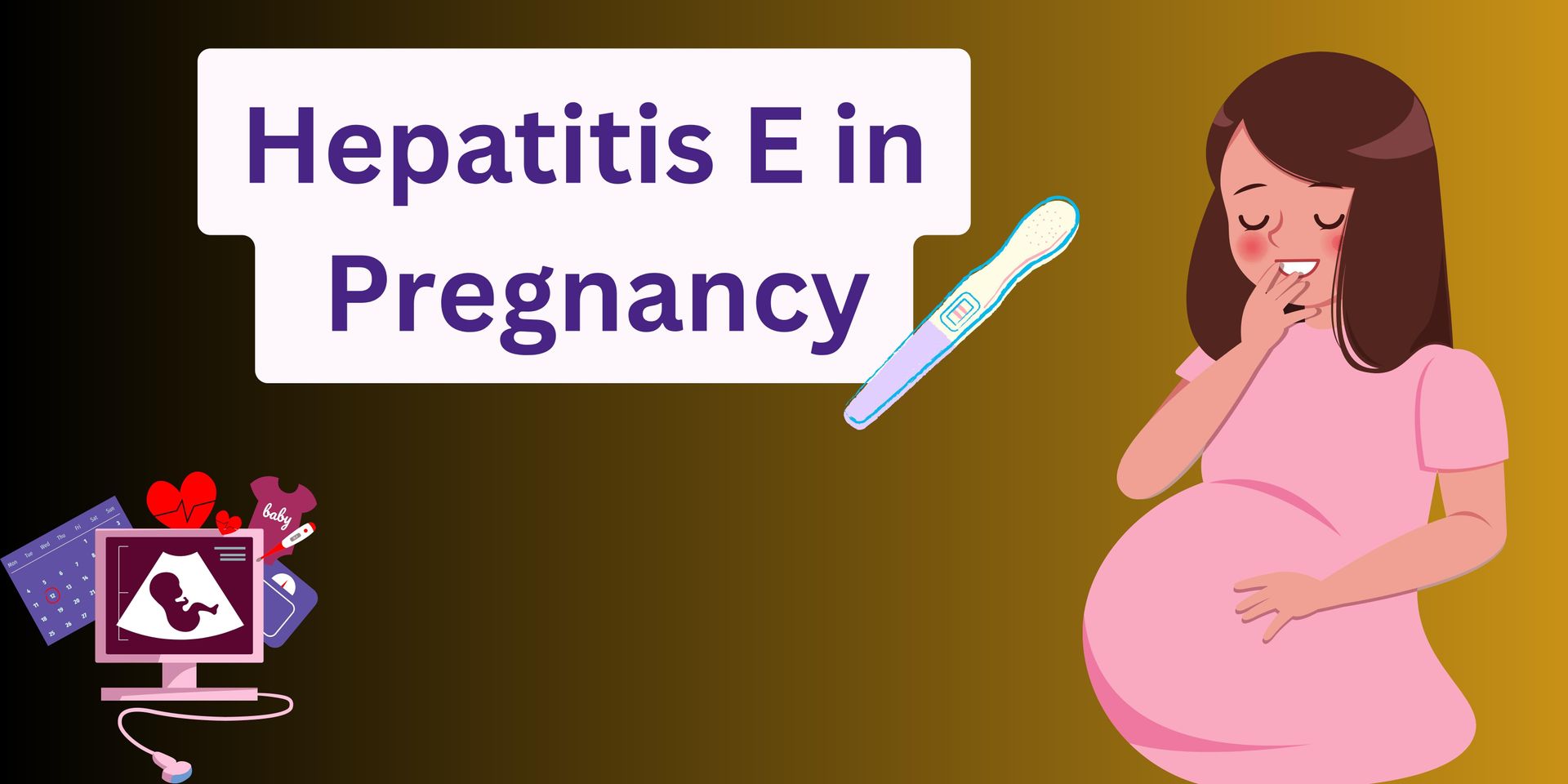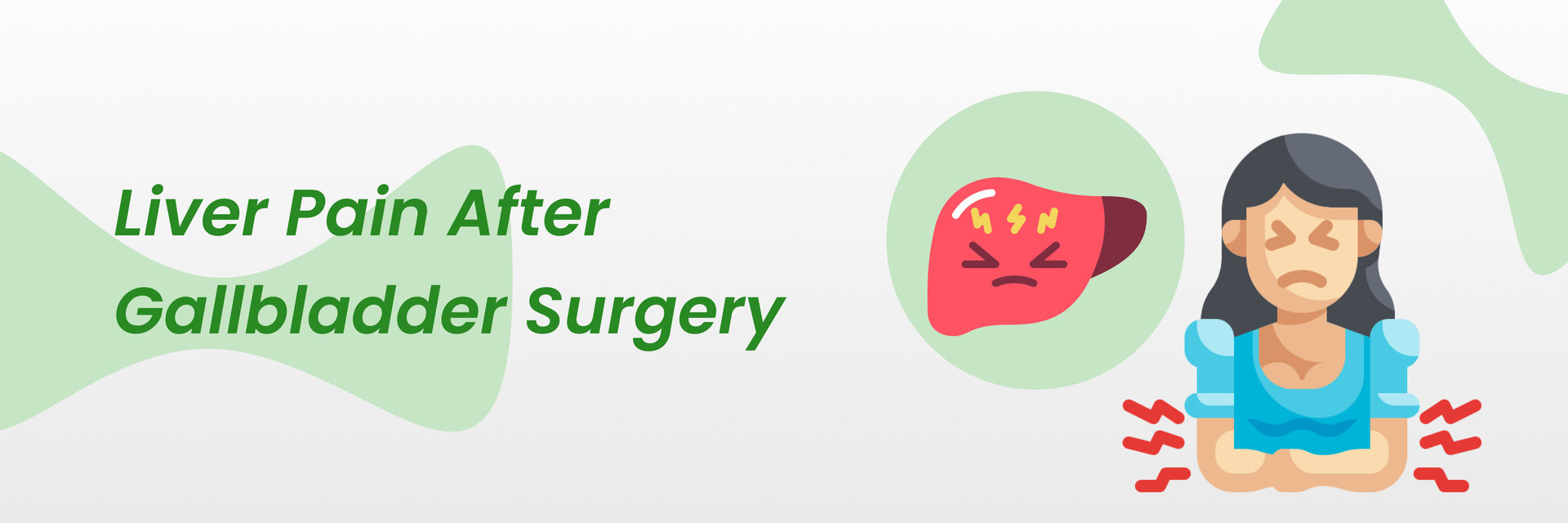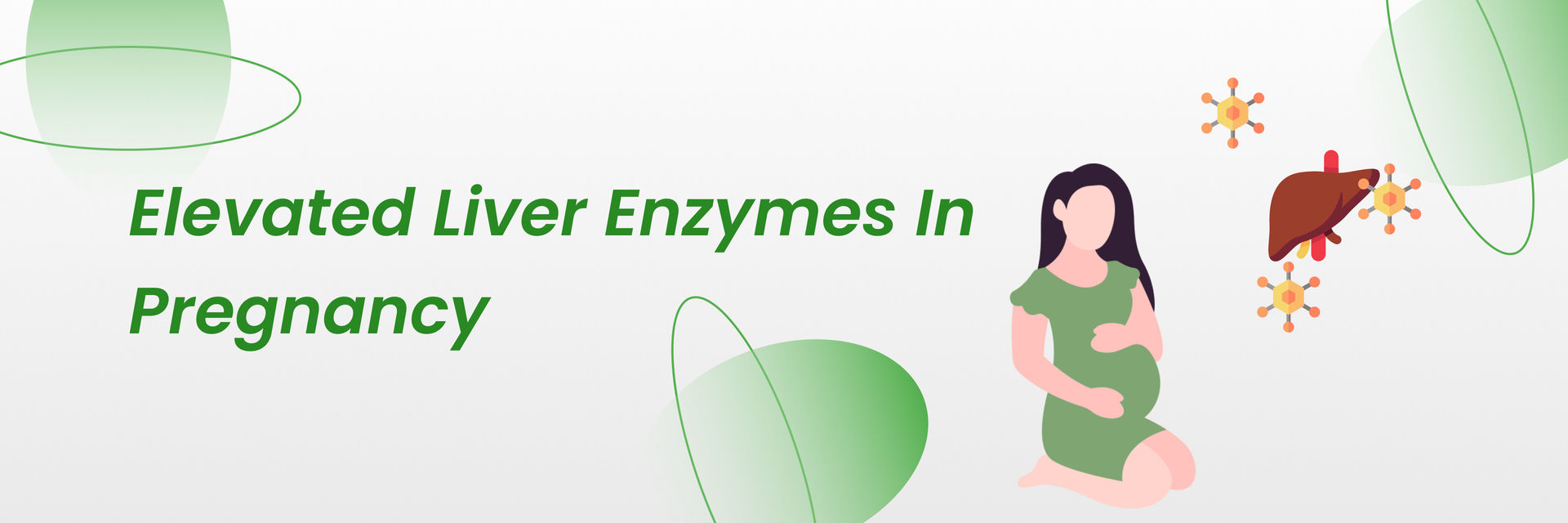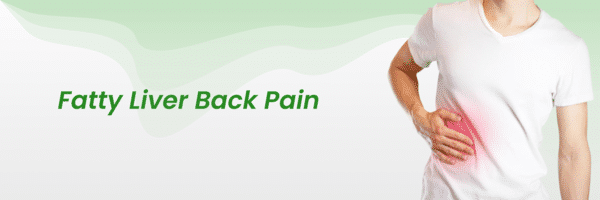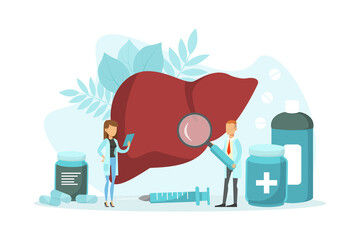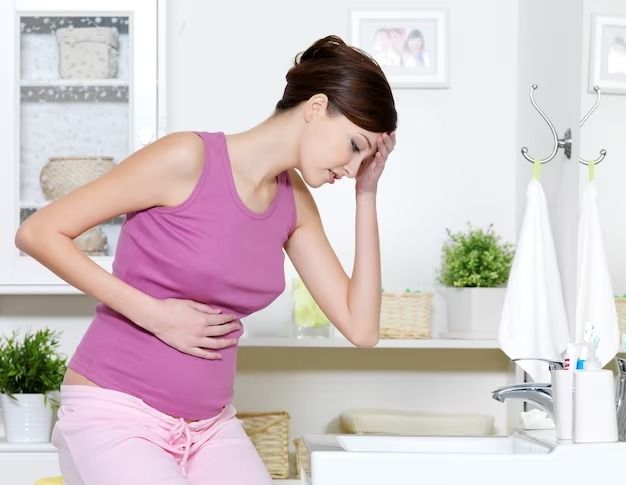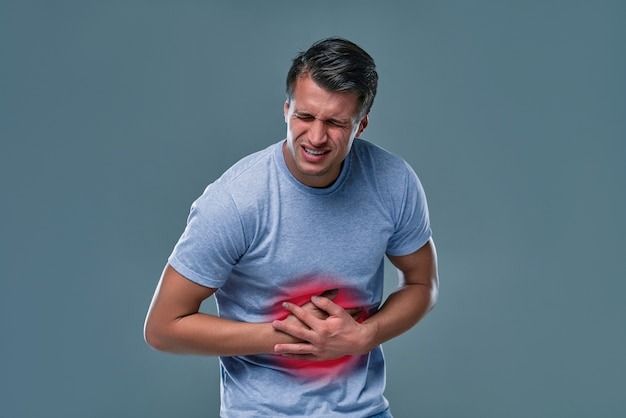Can you get a Fatty Liver after Gallbladder Removal?
Yes, it is possible to get fatty liver after gallbladder removal.
Gallbladder removal, or cholecystectomy, is a routine procedure often performed to treat gallstones or gallbladder disease. However, some patients develop fatty liver disease post-surgery. This condition arises due to alterations in bile flow and digestion, which can lead to fat accumulation in the liver. When the gallbladder is removed, a common surgical procedure, the liver takes on a greater responsibility of producing bile to aid in digestion. However, this increased bile production can lead to the accumulation of fat in the liver itself, resulting in a condition known as nonalcoholic fatty liver disease (NAFLD).
In simple terms, fatty liver after gallbladder removal refers to excess fats stored in the liver occurring after the gallbladder removal.
Did you know?
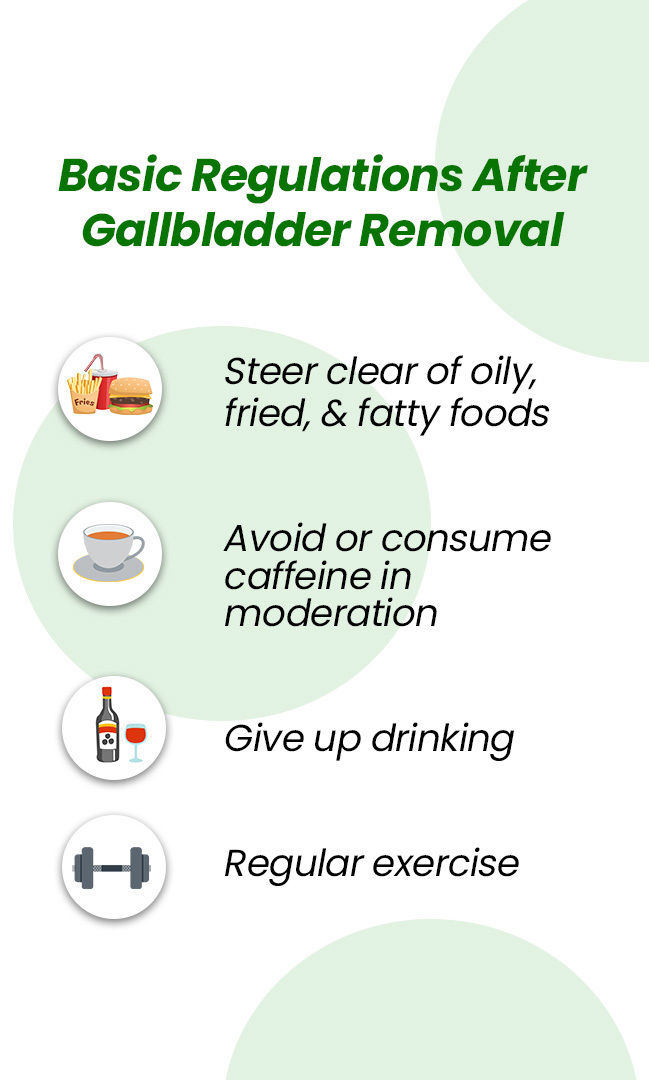
If this condition is not treated, it may also lead to problems like liver inflammation, increased risk of liver damage, and other major problems like hepatitis, cholestasis, and many more that may lead to a liver transplant, a very serious condition. If the person feels the change in bile flow, weight gain, and the emergence of insulin resistance, these factors can lead to the development of a fatty liver.
"The gallbladder's absence doesn't directly cause fatty liver, bile acid metabolism post-surgery changes can impact liver health. Additionally, factors like obesity and metabolic syndrome, which often coexist with gallstones, can contribute to fatty liver development. Monitoring liver function and promoting a healthy lifestyle post-surgery are crucial for preventing or managing fatty liver disease and its potential complications." says Dr. Gaurav Gupta, hepatologist and urgical Gastroenterology, Mumbai

Have you recently had gallbladder removal surgery and are in fear that you may get a fatty liver?
Don't worry, schedule your consultation with an expert hepatologist for treatment insights and to live a healthy and longer life!
Symptoms of fatty liver after cholecystectomy
- Fatigue: Feeling unusually tired or weak.
- Abdominal Pain: Discomfort or pain, usually in the upper right side of the abdomen.
- Weight Loss: Unintentional loss of weight.
- Loss of Appetite: Reduced desire to eat.
- Nausea: Feeling sick to your stomach.
- Jaundice: Yellowing of the skin and eyes (in severe cases).
- Swelling: In the abdomen or legs due to fluid buildup.
In some cases, fatty liver can progress to more serious liver problems like liver transplant, so immediate treatment is important.
Disclaimer: It is important to note that many people with fatty liver after gallbladder removal do not have any noticeable symptoms.
How does gallbladder removal affect a fatty liver?
Many people are unaware that gallbladder removal can impact liver health. We'll explain the connection between gallbladder removal and fatty liver and how to protect your liver.
Gallbladder removal, or cholecystectomy, can impact a fatty liver in several ways:
Altered Bile Flow: Without the gallbladder, bile flows directly from the liver to the small intestine. This change can affect digestion, particularly the digestion of fats, which may lead to fat accumulation in the liver.
Increased Fat Absorption: Changes in bile flow can lead to increased fat absorption from the diet, contributing to fat buildup in the liver.
Digestive Changes: Some people may experience digestive issues like diarrhoea or bloating after gallbladder removal, which affects overall nutrition and liver health.
Metabolic Changes: Gallbladder removal can influence metabolism, potentially worsening conditions like insulin resistance and metabolic syndrome linked to fatty liver.
Lisa Richards a nutritionist and author of The Candida Diet said, "The gallbladder helps digest fats by storing and releasing bile. After gallbladder removal, bile flows directly from the liver to the small intestine, affecting fat digestion and absorption. This change can lead to indigestion and fat buildup in the liver, increasing the risk of fatty liver disease."
Other Problems After Gallbladder Removal with Fatty Liver
Removing the gallbladder has a major impact on the liver, especially those who have already developed a fatty liver.
While the treatment cures gallstones or other difficulties, it also results in more complications that impact liver health.
Let us see the major complications that occur after gallbladder removal:
- Injury to the intestine, bowel, and blood vessels: The intestine, colon, and blood vessels can be affected by the surgical instruments that remove the gallbladder during the surgery.
- Bile Duct Injuries: Damage to the bile ducts can cause pain and digestive issues.
- Bile leakage: Bile leakage into the abdomen can lead to infection and inflammation. An enlarged abdomen, nausea, fever, and stomach discomfort can all be signs of a bile leak, which has a chance of less than 2%, and a problem with the bile duct. On rare occasions, this fluid might be flushed out. Sometimes, a procedure is performed to clean the stomach and drain the bile.
- Post-cholecystectomy syndrome: Some people may develop a variety of symptoms, such as stomach pain, diarrhea, indigestion, jaundice, fever, etc.
- Bleeding: This is rare, but sometimes it can occur.
- Digestive Problems: Difficulty digesting fatty foods, leading to diarrhea and bloating.
- Liver Fibrosis: Scarring of the liver, which can progress to cirrhosis.
How can fatty liver be prevented after gallbladder removal?
Preventing fatty liver after gallbladder removal requires changes in lifestyle and being more active in liver health.
- Healthy Diet: Eat a balanced diet of fruits, vegetables, whole grains, and lean proteins. Avoid excessive fat, sugar, and processed foods.
- Regular Exercise: Engage in physical activities like walking, jogging, or swimming for at least 30 minutes daily.
- Maintain a Healthy Weight: Aim for a healthy body weight through diet and exercise.
- Limit Alcohol: Reduce or avoid alcohol consumption to prevent liver damage.
- Control Medical Conditions: Manage conditions like diabetes, high cholesterol, and hypertension with proper medication and lifestyle changes.
- Stay Hydrated: Drink plenty of water throughout the day to support liver function.
- Regular Check-ups: Schedule regular visits with your healthcare provider to monitor liver health and address any issues early.
Contact the experts today! to get detailed guidance with dietary tips and treatment options to manage fatty liver disease after gallbladder removal and take charge of your health and your life.
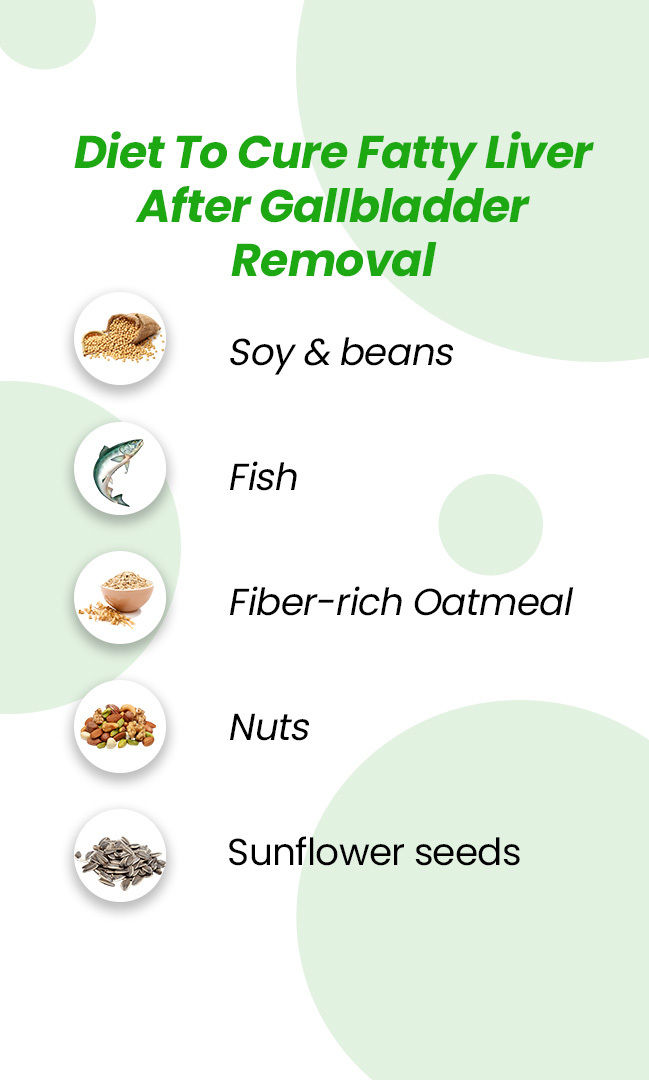
Diet to be taken to cure fatty Liver after gallbladder removal
Diet plays an important role in healing fatty liver after gallbladder surgery.
- Limit daily calorie intake: Maintaining a calorie-controlled diet can help with weight loss by reducing fat buildup in the liver.
- Reduce sugar: High sugar and carbohydrate intake can increase insulin resistance and promote fat buildup in the liver.
- Increase fiber intake: Fiber-rich foods such as fruits, vegetables, whole grains, and legumes can help regulate blood sugar levels and improve liver function.
- Limit fats: These fats can increase cholesterol levels and damage the liver.
- Avoid processed foods: Processed foods are often high in sugar, refined carbohydrates, and unhealthy fats.
- Include protein: High-quality protein sources such as chicken, fish, and legumes help in liver function and reduce burning.
Still concerned about managing fatty liver post cholecystectomy? Talk to the top hepatologists now for tailored guidance and support.
References:

